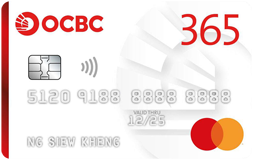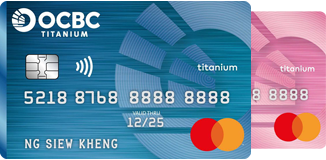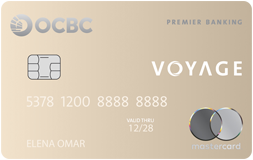Help And Support
Foreign Exchange Policy Notices (FEP notices) - General
-
Important Notices
You are advised to read and understand the FEP Notices and ensure all activities performed for accounts maintained with OCBC Bank (Malaysia) Berhad and/or OCBC Al-Amin Bank Berhad comply with the FEP Notices at all times.
Please note that this is not a complete set of the FEP Notices and they may be revised from time to time. You are advised to get the full and latest FEP Notices from Bank Negara Malaysia (BNM)'s Foreign Exchange Policy website at https://bnm.gov.my/fep.
This information is for general reference only. If you require the information for any purposes, please refer to the FEP Notices published at Bank Negara Malaysia's website and obtain (as required) independent advice. OCBC Bank (Malaysia) Berhad and OCBC Al-Amin Bank Berhad accept no liability for any part of this document.
-
What is Foreign Exchange Policy (FEP Notices) OCBC & OCBC Al-Amin?
The FEP Notices are a set of rules that are administered by Bank Negara Malaysia ("BNM") under the Financial Services Act 2013 and Islamic Financial Services Act 2013 to safeguard the value of the currency of Malaysia.
-
What is required from me?
- Let us know about your residency status (you will need to declare your status whenever you open an account)
- Ensure any payments and receipts to/from your account meet the permissible purposes (see Section A: Make or receive payment)
- Tell us about (i) your domestic ringgit borrowing status and (ii) investment status, when you intend to invest in foreign currency assets (see Section B: Investment in Foreign Currency Assets for your own account)
- Ensure any transaction to/from your foreign currency account meets the permissible sources and uses of funds (see Section C Foreign Currency Account (FCA))
- Obtain BNM's prior approval if your transaction does NOT meet the permissible purposes listed in Section A or the sources of funds and the allowable limits listed in Section B and Section C.
- Obtain BNM's prior approval if you have any dealing or transaction with any Israeli residents or Isreali-owned or controlled entities or involving the Isreali currency in any manner*.
*Applicable to resident and non-resident in Malaysia. More details at https://bnm.gov.my/fep.
You may submit your application online via BNM's FEP submission system at https://fep.bnm.gov.my/fep-pub/login.
-
Who does it apply to?
- Residents who are dealing in foreign currencies.
- Non-Residents who are dealing in Malaysian Ringgit in Malaysia.
Residents Non-Residents - Malaysian citizen; or
- Malaysian citizen with PR status of another country but resides in Malaysia; or
- Non-Malaysian citizen with PR status in Malaysia and resides in Malaysia; or
- Business enterprises/societies established in Malaysia
- Non-Malaysian citizen; or;
- Malaysian citizen with PR status of abroad and resides abroad; or
- Foreign embassies, high commissions, supranationals, central banks; or
- Business entities established abroad
-
Section A: You may make or receive payment (including cheques issued and deposited)
In Malaysia Ringgit in the following scenarios:
In Foreign Currency in the following scenarios:
Between Residents and Non-Resident Between Non-Residents Settlement of a ringgit asset including any income any profit due from the ringgit asset Settlement of a ringgit asset including any income any profit due from the ringgit asset Settlement of a trade in goods and services Settlement of domestic trade in goods or services in Malaysia Income earned or expense incurred, in Malaysia Income earned or expense incurred, in Malaysia Settlement of a commodity murabahah transaction between a resident and non-resident participant undertaken through a resident commodity trading service provider Settlement of a commodity murabahah transaction between non-residents participant undertaken through a resident commodity trading service provider Settlement of reinsurance for domestic insurance business or retakaful for domestic takaful business between a resident and a person licensed to undertake Labuan insurance or takaful business under LFSSA or LIFSSA Settlement of a Financial Guarantee denominated in Ringgit, to secure and underlying Borrowing in Ringgit Settlement of a Non-Financial Guarantee denominated in Ringgit for use in Malaysia Settlement of a Non-Financial Guarantee denominated in Ringgit for use in Malaysia For any purpose between immediate family members For any purpose between immediate family members Settlement of a court judgement where the transaction under litigation is undertaken in compliance with FEP Notices Between Residents Settlement for purchase of onshore foreign country investment product (offered by licensed onshore banks, licensed merchant banks, local licensed fund manager or entities permitted by the Controller) subject to compliance to Notice 3 Settlement for foreign currency denominated future contacts contracts traded on Bursa Malaysia subject to compliance to Notice 3 Settlement to resident futures broker for purchase of foreign currency denominated derivatives (excluding exchange rate derivatives) on specified overseas exchange under the Capital Markets and Services Act 2007, undertaken by a resident with firm commitment Settlement of a commodity murabahah transaction between resident participants undertaken through a resident commodity trading service provider Settlement for education, employment or migration outside Malaysia Settlement of domestic trade in goods or services between a resident exporter and a resident entity involved in the Global Supply Chain operations in Malaysia subject to fulfilment of certain conditions Settlement for a miscellaneous expense incurred outside Malaysia between a Resident Individual residing in Malaysia and a Resident Individual residing outside Malaysia, which is a Current Account Transaction that is of reasonable amount and infrequent in nature A resident is allowed to make or receive payment to or from a non-resident in foreign currency for any purpose, excluding payment made or received for -
- A Foreign Currency-denominated derivative or Islamic derivative offered by a Resident unless approved by BNM under Part B of Notice 5 or otherwise approved in writing by BNM;
- A derivative or Islamic derivative which is referenced to Ringgit unless approved by BNM under Part B of Notice 5 or otherwise approved in writing by BNM; or
- An Exchange Rate Derivative offered by a Non-Resident unless approved by BNM under Notice 1 or otherwise approved in writing by BNM.
-
Section B: Investment in Foreign Currency Assets for your own account
Some examples of foreign currency (FCY) assets with OCBC Malaysia include FCY Call Account / Time Deposit, Dual Currency Investment (DCI), FCY Retail Bonds and Oversea Property Financing in FCY.
If you are a Resident individual, sole proprietor or general partnership:
Without domestic ringgit borrowing you are allowed to invest in foreign currency assets of any amount; or With domestic ringgit borrowing you are allowed to invest in foreign currency assets of
- Any amount using foreign currency funds
- from outside Malaysia except proceeds of Export of Goods
- from non-resident, other than foreign currency borrowing; or
- sourced from Investment FCA (IFCA)
- Up to RM10 million equivalent in aggregate of foreign currency borrowing obtained by the resident from a licensed onshore bank or a non-resident; or
- Up to RM1 million equivalent3 in aggregate per calendar year -
- using foreign currency funds sourced from Trade FCA (TFCA)
- using foreign currency funds sourced from conversion of ringgit; or
- through the swapping of a Ringgit-denominated financial asset in Malaysia for a financial asset in Labuan Entity or outside Malaysia
2 Computed based on an aggregate of Borrowing in Foreign Currency by the Resident Individual and a sole proprietor and a General Partnership owned by the Resident Individual.
3 Computed in aggregate based on the Resident Individual, sole proprietor and General Partnership's investment in Foreign Currency Asset.
- Any amount using foreign currency funds
Investment in Foreign Currency Assets for your own account
(a) If you are a Resident entity:
Without domestic ringgit borrowing you are allowed to invest in foreign currency assets of any amount; or With domestic ringgit borrowing1 you are allowed to invest foreign assets of
- Any amount using foreign currency funds
- from outside Malaysia except proceeds of Export of Goods;
- from non-resident, other than foreign currency borrowing; or
- sourced from Investment FCA (IFCA)
- Any amount using foreign currency borrowing obtained from a licensed onshore bank for direct investment aboard;
- Up to the amount of approved foreign currency borrowing obtained from a non-resident as set out in Part A of Notice 2;
- Up to the amount of the proceeds sourced from the listing of shares through an Initial Public Offering in the Main Market of Bursa Malaysia or
- Up to RM50 million equivalent in aggregate2 per calendar year
- using foreign currency funds sourced from Trade FCA (TFCA)
- using foreign currency funds sourced from conversion of ringgit; or
- foreign currency borrowing obtained from a licensed onshore bank for purposes other than direct investment aboard; or
- through the swapping of a Ringgit-denominated financial asset in Malaysia for a financial asset in Labuan Entity or outside Malaysia.
- the Resident Entity is deemed to have a DRB when another Resident Entity with Parent-Subsidiary Relationship has a DRB; and
- The following shall not be considered as DRB -
- A borrowing obtained by a resident entity from another resident entity within its group of entities with parent-subsidiary relationship;
- a borrowing obtained from its Direct Shareholder; or
- any facility including credit facility or refinancing facility which is used for Sundry Expenses 3 or Employees' Expenses4 only.
1 "Domestic Ringgit Borrowing (DRB)" means (a) any borrowing in ringgit obtained by a resident from another resident or (b) any obligation considered or deemed as DRB under any of the FEP Notices.
Note: For purposes of determining the DRB status of a Resident Entity -
2 Sundry expenses refer to expenses that are small in amount and infrequent including office supplies (e.g. stationeries), purchase of ancillary services (e.g. software and online subscription) and other minor expenses to facilitate daily business operations of the entity.
3 Employees' expenses refer to business-related expenses which may include, but not limited to travel (e.g. lodging and transportation), entertainment, health, insurance, Takaful and other employees' expenses excluding for investment.
4 the RM50 million equivalent refers to investment in Foreign Currency Asset by the resident entity and other resident entities within its group of entities with parent-subsidiary relationship.
-
Section C: Foreign Currency Account (FCA)
Effective 5th December 2016, existing FCA l and FCA ll will be replaced by Trade Foreign Currency Account (Trade FCA) and Investment Foreign Currency Account (Investment FCA) respectively. The source of funds and uses of funds permissible for each of the FCA is as follows:
l. Resident individual, sole proprietor or general partnership Trade FCA Investment FCA Source of funds - Up to 100% of proceeds Export of Goods
- Conversion of ringgit on spot basis subject to availability of FC obligation*
- Settlement of FX Forward contracts
- Other foreign currency funds
*only if the balances in the Trade FCA are not enough to meet the FC obligations.
- Any amount using foreign currency funds -
- From outside Malaysia except proceeds of Export of Goods
- From a non-resident, other than foreign currency borrowing
- Up to RM10 million equivalent in aggregate 1 of foreign currency borrowing from a licensed onshore bank or a non-resident
- Up to RM1 million equivalent in aggregate2 per calendar year using funds from -
- Conversion of Ringgit into Foreign Currency
- Swapping of a Ringgit-denominated financial asset in Malaysia for a financial asset in Labuan Entity or outside Malaysia
- Transfer from Trade FCA
1 Computed based on an aggregate of Borrowing in Foreign Currency by the Resident Individual and a sole proprietor and a General Partnership owned by the Resident Individual.
2 This is applicable to resident individual, sole proprietor or general partnership with domestic ringgit borrowing only and computed in aggregate based on the Resident Individual, sole proprietor and General Partnership's investment in foreign currency asset.
Uses of funds - Foreign currency obligations
- Import payment
- Foreign currency loan repayment
- Transfer into Investment FCA subject to investment limit
- Other current international transactions
- Payment by a resident exporter to other residents involved in the global supply chain for settlement of domestic trade in goods and services
Any purpose ll. Resident entities Trade FCA Investment FCA - Up to 100% of proceeds of Export of Goods
- Conversion or ringgit on spot basis subject to availability of FC obligations*
- Receipt by resident entity from resident exporter involved in the global supply chain for settlement of domestic trade in goods and services
- Settlement of FX Forward contracts
- Other foreign currency funds
*only if the balances in the Trade FCA are not enough to meet the FC obligations.
- Any amount using foreign currency funds -
- From abroad outside Malaysia except proceeds of Export of Goods
- From a non-resident, other than foreign currency borrowing
- Foreign currency borrowing from a licensed onshore bank for direct investment abroad (DIA)
- Up to the amount of -
- Approved foreign currency borrowing from non-resident
- Foreign currency sourced from Initial Public Offering on the Main Market of Bursa Malaysia
- Up to RM50 million equivalent in aggregate3 per calendar year on a corporate group basis from -
- Conversion of Ringgit into Foreign Currency
- Foreign currency borrowing from a licensed onshore bank for purposes other than DIA
- Swapping of a Ringgit-denominated financial asset in Malaysia for a financial asset in Labuan Entity or outside Malaysia
- Transfer from Trade FCA
3 This is applicable to resident entities with domestic ringgit borrowing only and computed in aggregate based on the Resident Entity and other Resident Entity with Parent-Subsidiary Relationship's investment in foreign currency asset.
- Foreign currency obligations
- Import payment
- Foreign currency loan repayment
- Transfer into Investment FCA subject to investment limit
- Other current international transactions
- Payment by a resident exporter to other resident exporter to other residents involved in the global supply chain for settlement of domestic trade in goods and services
Any purpose Disclaimer:
This information is for general reference only. If you require the information for any purpose, please refer to the FEP Notices published at Bank Negara Malaysia's website and obtain (as required) independent advice. OCBC Bank (Malaysia) Berhad and OCBC Al-Amin Bank Berhad accept no liability for any part of this document. -
Summary of latest BNM announcement
Under the Liberalisation of Foreign Exchange Policy Notices read with the related FAQs ("FEP Notices"), Bank Negara Malaysia (BNM) has announced FEP Notices which provides greater flexibilities to businesses as part of their continued efforts to strengthen Malaysia's positions in the global supply chain and to foster a conducive environment in attracting foreign direct investment (FDI) into Malaysia. Below is the summary of BNM's announcement.
- Removal of export conversion rule
Resident exporters may now manage the conversion of export proceeds according to their foreign currency cash flow needs. Mandatory 75% conversion to Malaysia Ringgit is no longer applicable and resident exporters may maintain 100% of their export proceeds in their respective TFCA.
- Resident exporters can settle domestic trade in foreign currency with other residents involved in the global supply chain [1]
Recognising Malaysian exporters' vital position in the global supply chain, this measure will facilitate natural hedge for resident exporters and their business partners along the supply chain to better manage the foreign exchange risk.
- Resident exporters can extend the period for repatriation of export proceeds beyond six months under exceptional circumstances [2]
While the 6-month rule remains in place, this flexibility eliminates the need for exporters to seek BNM's approval in repatriating their export proceeds beyond the 6-month period for reasons beyond the exporters' control. For other purposes, approval from BNM is still required.
- Resident exporters can net-off export proceeds against permitted foreign currency obligations [3]
With this flexibility, exporters no longer need to seek approval from BNM for netting arrangements involving export proceeds. This would enhance business efficiency and cash flow management for exporters.
- Resident corporates can undertake commodity derivatives hedging directly with non-resident counterparties
In addition to the current access to resident futures brokers for their commodity hedging needs, resident corporates are allowed to transact commodity derivatives with non-resident futures brokers directly. This provides risk management avenue and choice for resident corporates to hedge their commodity price risk.
[1] Global supply chain is defined as a business activity where resident importers purchase goods or services from oversea to support production and distribution of goods or services by resident exporters for their export activities. This includes domestic trade transactions between the resident importer and the resident exporter undertaken through resident intermediaries.
[2] Exceptional circumstances are defined as situation where exporters have no control over the delay in receiving the export proceeds e.g. their buyers are in financial difficulties (see FAQs for more details).
[3] Such as netting of export receivables against import payables with the same overseas buyer and supplier (see FAQs for more details).
[4] Refer to BNM's website at https://bnm.gov.my/fep.
- Removal of export conversion rule
-
Foreign Exchange Policy Notice 7 – Export of Goods
- A Resident exporter shall receive the proceeds of its Export of Goods in Malaysia (a) in Ringgit or Foreign Currency which shall be placed in a Ringgit account or Trade FCA (b) in full value excluding any (i) approved deductions related to the Export of Goods as listed in Appendix A of FEP Notice 7; and excluding any (ii) amount spent for approved offsetting or writing-off arrangements as listed in Appendix B of FEP Notice 7.
A Resident exporter shall receive the proceeds of its Export of Goods in Malaysia earlier than or in accordance with the payment date of the export contract which shall not exceed six (6) months from the date of shipment. However, where any of the circumstances stated in Appendix C of FEP Notice 7 applies, the Resident exporter may receive the proceeds of its Export of Goods up to twenty-four (24) months from the date of shipment. - The above shall not apply to proceeds of Export of Goods categorised under Appendix D of FEP Notice 7.
- Where a Non-Resident undertakes settlement for an Export of Goods in Ringgit in Malaysia, the Ringgit shall be sourced from (a) buying of Ringgit against Foreign Currency in accordance with Part B of FEP Notice 1; (b) an External Account of the Non-Resident; (c) an External Account of an NRFI acting on behalf of the Non-Resident, where it shall involve the buying of Ringgit in accordance with Part B of FEP Notice 1; or (d) a Ringgit trade financing facility from a LOB in accordance with Part D of FEP Notice 2.
- Where a Resident exporter’s annual gross Export of Goods exceeds RM250 million equivalent in the preceding year, the Resident exporter shall submit a report on Export of Goods to BNM via https://www.bnm.gov.my/fep as and when required by BNM.
- Where any proceeds from Export of Goods as referred to under part 1(c) above is not received by the Resident exporter within 24 months from the date of shipment, the Resident exporter shall notify BNM on the outstanding Export of Goods proceeds within twenty-one (21) days after the end of each calendar year via https://www.bnm.gov.my/fep.
Refer to BNM’s website at https://www.bnm.gov.my/fep - Notice 7 - Export of Goods and FAQs on Export of Goods for more information.
- A Resident exporter shall receive the proceeds of its Export of Goods in Malaysia (a) in Ringgit or Foreign Currency which shall be placed in a Ringgit account or Trade FCA (b) in full value excluding any (i) approved deductions related to the Export of Goods as listed in Appendix A of FEP Notice 7; and excluding any (ii) amount spent for approved offsetting or writing-off arrangements as listed in Appendix B of FEP Notice 7.





